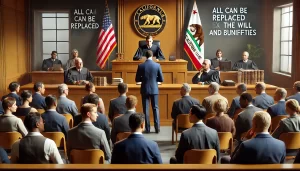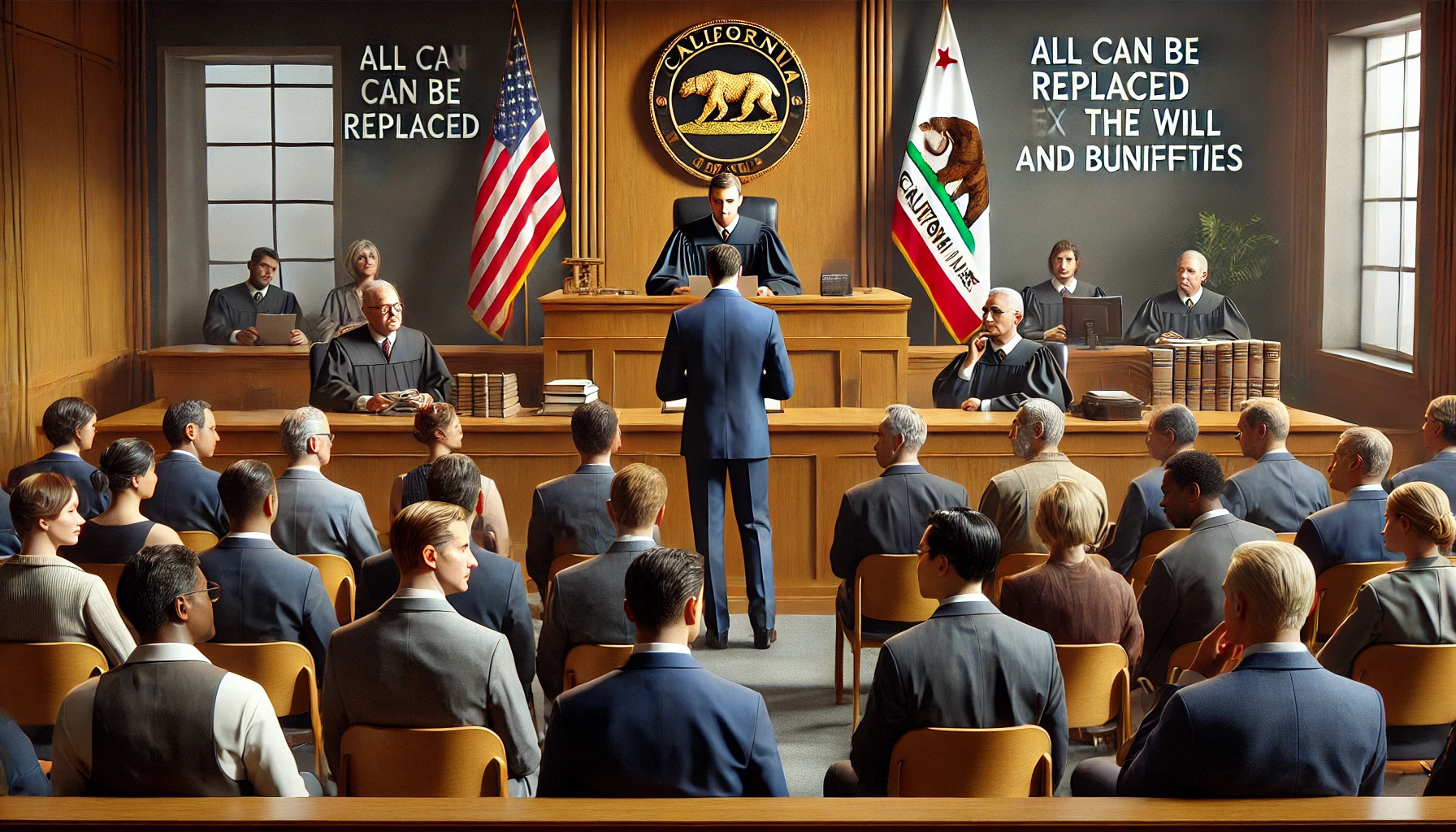Understanding the Changes and Adjustments in Probate Roles
A personal statement: This may come across as blunt, but my commitment is unwavering: the estate must be protected, honored, and served with the utmost integrity. My focus is on ensuring the wishes of the deceased are respected and that every aspect of the probate process is handled fairly and responsibly.
The probate process is a delicate orchestration of legal and financial roles, each pivotal in ensuring that an estate is administered effectively and fairly. While the primary purpose is to honor the decedent’s wishes, the dynamic nature of probate law allows for adjustments when these roles are not performed as expected. In California, governed by the Probate Code, the law anticipates circumstances where individuals may need to be replaced to uphold the integrity of the process. Let’s explore these roles and the reasons for change, diving into the human, legal, and practical elements of probate adjustments.
The Replaceable Pillars of Probate
Executor/Administrator
This individual is often the cornerstone of the probate process, tasked with responsibilities ranging from paying debts to distributing assets. However, if inefficiency, unethical actions, or incapacity arise, the court has the authority to replace them under Probate Code §8500. Filing a Petition for Removal of Personal Representative (Form DE-165) initiates the process to safeguard the estate’s proper management.
Probate Lawyer
Even the most seasoned probate attorney can face removal if their performance falls short or if disagreements about their approach arise. The ability to replace legal representation empowers beneficiaries and administrators to prioritize the estate’s best interests. Filing a Substitution of Attorney Form (MC-050) allows for the seamless replacement of legal counsel.
Probate Referee/Appraiser
A probate referee plays a critical role in accurately valuing estate assets. Inaccuracies or perceived biases can disrupt the process, leading to reassignment under court supervision. A Request for Replacement of Probate Referee can be filed with the probate court to address valuation concerns and ensure fairness.
Guardian/Conservator
For dependents or incapacitated heirs, a guardian or conservator is appointed to manage their care or finances. However, if these individuals neglect their duties or conflict with the heirs’ best interests, they can be replaced through a Petition for Removal of Guardian or Conservator (Form GC-210). This safeguard is vital in protecting vulnerable parties.
Trustee
Managing trusts requires strict adherence to fiduciary duties. Trustees who mismanage funds or fail to honor the terms of the trust may be removed under Probate Code §17200. Filing a Petition to Remove Trustee (Form DE-147) is essential for ensuring proper trust administration and protecting beneficiaries’ interests.
Roles with Limited Adjustability 
While most probate participants can be replaced, some exceptions exist.
Beneficiaries and the Will
The Will itself and the designated beneficiaries are the cornerstones of probate. The court ensures these elements remain unaltered unless legally invalidated or subject to intestacy laws when no valid will exists. Beneficiaries cannot be replaced, but changes to inheritance shares may occur if a beneficiary predeceases the testator or renounces their share.
Key Professional Roles in Probate
Realtor/Real Estate Agent
Selling estate property is often critical to settling debts or distributing assets. An underperforming agent can slow the process, making replacements common if the estate’s goals are not being met. A Request for New Realtor Approval through the court allows estates to switch to a more effective agent.
Financial and Tax Advisors
Professionals managing estate taxes or investments may be replaced if errors occur or if better expertise is available. Filing a Request for Substitution of Financial Advisor helps ensure the estate’s financial stability and compliance with tax laws.
Why Adjustments Are Necessary
The probate process is far from static. Family dynamics, unforeseen disputes, or inefficiencies can create challenges that require intervention. These changes are not punitive but are designed to restore balance and align the process with the decedent’s intent. By leveraging the appropriate legal forms and procedures, stakeholders can ensure that all roles contribute effectively to the estate’s administration.
The Judge’s Role in Overseeing Adjustments
In California, the probate judge acts as the ultimate authority, ensuring all roles function cohesively. Judges may intervene when conflicts arise, appointing new executors or trustees and addressing disputes. If bias or conflict of interest is perceived, a Motion to Recuse a Judge can be filed to maintain impartiality.
Final Thoughts
The probate process, while intricate, is built on flexibility and adaptability. Every role—be it executor, appraiser, or financial advisor—is held accountable to the estate’s ultimate purpose: honoring the wishes of the deceased while protecting the interests of the living. Adjustments to these roles are not only possible but essential in maintaining the integrity of the process.
Whether you’re an heir, administrator, or professional involved in probate, understanding the replaceable nature of these roles equips you to navigate the system effectively, ensuring justice and fairness for all parties involved. So all parties need to act responsibly and keep track of their activities, in case someone points a finger at them.

